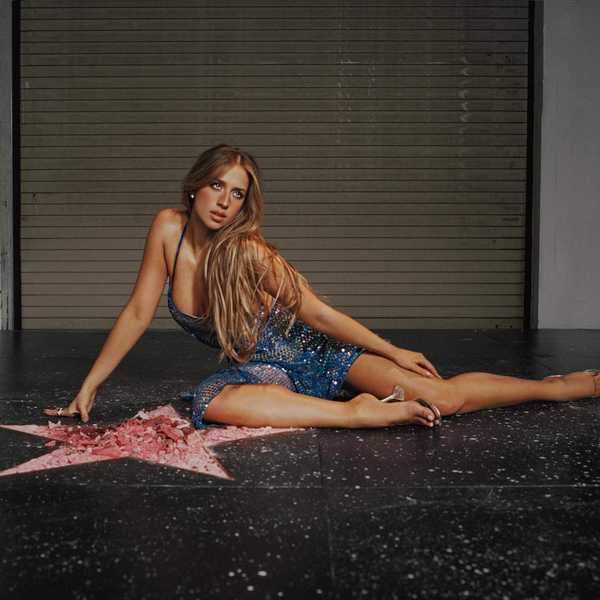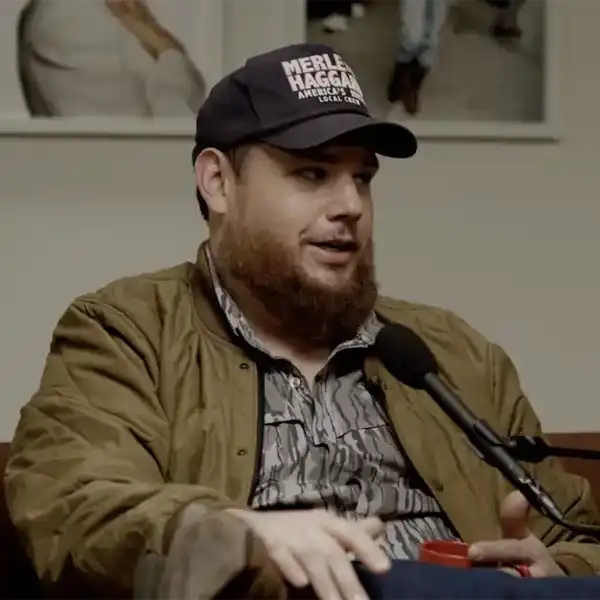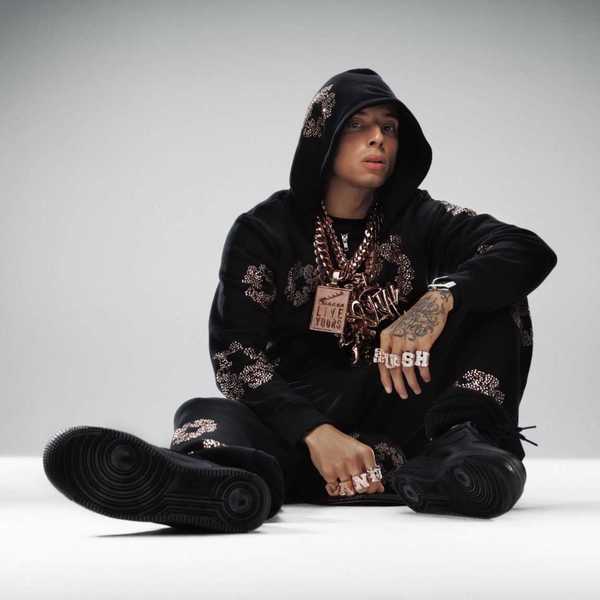Rick James: Court Sense
Ricky had been floating around charming the neighbourhood while inspecting a bevy of young females, bathing them in attention.

By Bill King
Ricky had been floating around charming the neighbourhood while inspecting a bevy of young females, bathing them in attention. This is early ‘70s Gothic Avenue in our High Park Toronto neighbourhood—home to about 100 hippies, activists, musicians, pot dealers, bikers, and families.
Occasionally, James would arrive with a sidekick, a guy all dressed in black. Shirt, tie and suit with a jeweller’s briefcase at his side. The contents? Precious stones, gaudy turquoise jewellery, tie clips, bulbous rings, most imported from America’s southwest. James would ask me to invite potential clients to the party for a cut. I saw no future in such bartering, in that Gothic Avenue was home to artisans of all stripes.
One afternoon, we’re lounging on the front porch, and a voice from across the street cries, “Will someone wash my back?” The shout-out got James’s attention. Wham! James was gone in a burst, crisscrossed the street - up the front porch and into the house. The next words I hear are. “Get the hell out of here.” A pause. “All I want is to wash your titties.” A scream. “Get the hell out of here, asshole.” James strides back to our side of the street and protests. “Bitch! Never call for a man to wash your back unless you want the full treatment.” I had to think about that for a while.
Rick James and I first met in 1970 at the office of Off-Track Betting founder John Benwell. Benwell was tapped by the entertainment denizens to invest in a weird assortment of artists and events—including the John Brower fiasco—Jesus Christ Superstar. I assumed James was on the payroll, as well as I. James would run about the office, get hold of a guitar, wrangle us in and begin singing. Nothing of any shape or design, sketches of potential songs.
Each Friday, I’d arrive and meet with the gregarious Benwell. Benwell would wait for the pickup and delivery guys and a hundred or two thousand dollars of gambling bets. At the odd time, he would pop the briefcase, leave the room, and say to me, “Watch that for me.” Crazy shit. Ten to fifteen minutes later, he’d return, reach into, and extract a $100 bill and stuff it into a shirt pocket of mine. Smile and wish me a good day. A week of survival pay.
Through it all, I had nothing but respect and goodwill for the man. Benwell had been preyed on, lied to, and suckered into bullshit investments by the usual Toronto scam artists. There would be times he’d ask me if I thought something was worthwhile. I’d investigate and report back. Most counts, nonsense. My favourite – Eight of Kind — four topless dancers sent to Las Vegas to make him millions. Benwell was later convicted of bookmaking, keeping a betting house, sentenced to nine months in jail and a $50,000 fine. We corresponded until his release and deportation to England. James was dating Benwell’s secretary—a classic beauty, one I would learn decades later, had allegedly been physically and psychologically abused by the iterant musician.
James began showing up daily on Gothic Avenue. We would shoot hoops at the end of the street, a place of solitude I would take unsuspecting musicians. Even songwriter Rodney Crowell who was in town to write for Anne Murray and others got into the hoops and talk.
During the initial weeks, I reigned. Then James got his legs back and would come at me full force—and beat my ass. We pushed each other. Never to the brink or anything provoking, just the drill. Those encounters widened to Tuesday and Thursday nights at the University Settlement House on Grange Road. A community centre in operation since 1910.
The second go-round at the Settlement House saw a more confident James sprint up and down the court and score at will; Buffalo, New York style. Before games, James appeared in the locker room, draped in an oversized white fur coat, hunks of turquoise jewellery flopping from his neck, and a fly pimp hat tilted to one side. If you didn’t know Rick, you’d think a drag queen was roaming the compound. James would switch into a pair of red shorts and a white T-shirt, leave the discarded costume tucked away in a locker, then mix with the commoners upstairs. If he weren’t the only black man on the court, you would have never noticed.
By now, James was getting more confident. The both of us come from American playgrounds, where taunting and laughter are part of the game - a fusion of cool and skill; mandatory. The boys upstairs didn’t see it that way. The humourless bunch read James’ constant chatter as an invitation to fight. James would laugh them off. “Motherfuckers, you play like pussies.” I’d long been familiar with the chatter, the baiting, trash talking. Street culture. It’s the psychological part of the game. It’s also the funniest and groundwork of bonding.
City TV was in its early stages, with various civic forums and open mike nights in play. One such, Free for All, with the vain and combative artist William Ronald - “I painted a street mural, and it’s in disrepair—it’s worth $100,000. The city should hire me to remedy this noble gift (I) gave to the city.” Night after night, Ronald ripped the local art scene. New York was where it was at. Ronald had had a showing in a Manhattan Gallery a decade earlier, and from that day on carried himself like a levitating circus barker. The audience a study in rowdy. Fists flying, profane language.
We arrived with a contingent of committed activists from Gothic Avenue to protest the destruction of our neighbourhood. Ronald addressed me as “draft dodger.” I ignored the verbose jerk. There was a segment of the audience who tuned in to witness the snappy Roland retorts. Inflammatory and insulting. That night, city hall and developers watched, and we were heard. Only days later we were called to meet with city officials and the police department.
Local jazz aficionado Larry Green scored a one-hour weekly music show on City - Music Friends and offered me a segment. I brought along guitarist Danny Marks, bassist Chris Vickery, Bill Usher, percussion, Ian Gunther, violinist, and drummer Malcolm Tomlinson. At the last moment, I invited Ricky.
We rehearsed in advance, and Rick learned two of my originals—the showstopper Grim Reaper and whatever the other was called. My view of the song was far different from James’, but I was wise enough to let him roll with it. Rick went all in Jim Morrison. In fact, James came dressed as swashbuckling vigilante Zorro and milked the song for a good fifteen minutes. I could see where he was coming from. I was shy and more at ease speaking to social ills, James, theatrical, an entertainer, and there to mug and milk every phrase. He was terrific.
When I returned to Canada in late ‘79, I dialled City TV, looking for a copy of that show. An assistant searched and confessed—they had so little funds City would record over videotapes, reuse, and erase. Damn!
James put a band together, White Cane, funded by lawyer Stan Weisman, one of our fellow basketball partners. Stan was shrewd and got everything contractually down on paper and put up $10,000. The band moved into the studio and cut a few sides and began playing gigs around Toronto. Stan was always hustling on James’s behalf. An astute businessman/lawyer with a keen ear for talent.
Somewhere in the rumble and tumble, James and Danny Marks had a falling out, and James punched holes in the speakers of Marks' prised Fender Twin Reverb. James understood the power of cloak and dagger revenge.
I was religious about basketball. It was my reprieve from the daily stress of being a musician and resolving my issue with the American military and Vietnam. James had spent time in the service and was never clear where things went from there. He initially came to Canada, AWOL from the Navy, formed the Mynah Birds and stayed close to his Yorkville digs. How he solved the military thing remains a mystery.
Ricky and I would occasionally gather – share road stories and big laughs. Things were cooking for him, with Hollywood only months away. We expanded our perimeter venturing into the Keele Street, Annette Recreation Centre basketball scene—the Rautins brothers, George and Leo.
One evening at the Settlement House, I showed up late for basketball and strolled into a nasty situation. A fellow player walked past me, applying a blood-soaked towel to his mouth. There was an eerie silence on the court. The guy turned and screamed at James, “You’re done motherfucker, you’re done - start running.” James was gone in a flash.
I hadn’t witnessed the encounter, and it wasn’t until mouths started wagging, I got the story. It seems Ricky and ‘said’ player had been jostling up and down the court, and Ricky got in his face and the guy said something that lit a fuse. James smashed him in the mouth and broke a few teeth.
There are two kinds of court sense: figuring out the game - the second; understanding your opponent. If you can’t physically handle a guy, it’s best to let things play out and shut the hell up. On this occasion, the mouth was way too busy. Not long after the encounter, James departed.
Years later, I’m walking along a Toronto side street when this guy walks up and says, “Hey King, you know who I am?” I respond, “Not Really!” I’m the guy your pal Rick James sucker punched in the face and a cop and there’s a warrant for your pal James, and when I’m done with him, James will be in jail forever. Tell your buddy I’m coming for him” He then score-carded the costs of fixing his teeth and the damage to his mouth.
James was long gone and living in the U.S. I doubt if he ever returned to Canada. To this day, even after his death, I bet that warrant remains in place.
We lived in Atlanta in ’78 - ‘79, and James was coming through town. Atlanta was a break-out market, and Ricky had struck gold with You and I. I chased down the promoter, who got word to Ricky. Kris, Jesse, and I were invited down and placed in the front row.
Through the concert, I could see where this was going. James was holding an electric bass and bouncing around like Bootsy Collins, moving like he had command of the instrument. Fake bass! James sported a natty Jamaican dread wig and prowled the stage like a performer in the making. This was old Ricky, with a complete show, yet almost laughable.
After the gig, we were invited back to James’s dressing room. Much like the old days, James was outrageous and still had the knack of making you feel like the only person of importance to him. He met Jesse, seven years old, and proclaimed, “I’m your Godfather Rick James. Is there anything you want, anything?” Jesse looks at him and says, “Bicycle!” James looks down at Jesse and responds, “You’ve got it. That’s a promise.” Kristine and I knew it was bullshit, and once James was out of the arena, he was out of our lives.
That was the last time I saw Ricky. The years pass, and James soars to fame. Now running with the “Bigs” and setting trends, though all was not well. Drugs, kidnapping and torture charges would follow, and a careless disregard for the body would defeat him. There was little love for a guy who had it all and pissed it away. Comedian Dave Chappelle tooned him. Those episodes sealed the unlikely deal.
Stan? Years later, ‘good Ricky’ called him before his downfall, flew him down to Los Angeles, introduced him to Magic Johnson and the Lakers, and repaid the $10,000. Bad Ricky? We know the rest!
My departing gigs before first coming to Canada in 1969 were with black musicians. Rick was that connection, and we made the most of it. People do fucked up things with their lives, but there are moments when the innocence and kid in each of us humanizes. I’ve known many folks who were lovely people when sober but when the demons kick in, scary as hell. James was all in. The trash-talking guy on the basketball court was a much better person than the oft alleged woman beater, bully, rip-off artist and tortured monster on the way out.
The game of street basketball kept it simple. You play hard, you laugh, you shoot, you score, you walk away friends.
Success?
To quote Titus Turner. “People sure do act funny when they get a little money.”

















